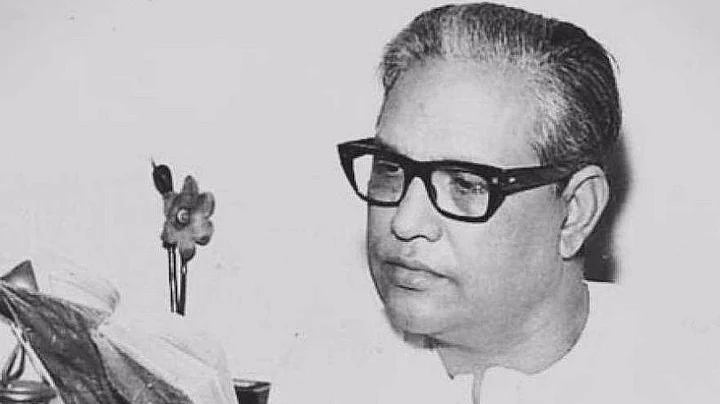(This is a personal blog. Views expressed are the author’s own. The Quint neither endorses nor is responsible for them.)

The publication of Kabita Samagra, the collected works (Odia poems) of renowned Odia poet Jayanta Mahapatra on his 91st birthday, is a moment of celebration for his readers.
Although he mostly wrote in English, and started writing in his mother-tongue Odia much later, he seems to have made up for it by writing as much as eight volumes in Odia, that are compiled in this new anthology.
Mahapatra has often been asked as to why he should revert to his mother tongue when he had already got a footing in English, creating an idiom of his own, especially in his long poem ‘Relationship’ that won him the Sahitya Akademi Award in 1981 – the first ever for an Indian poet writing in English. To this, Mahapatra always maintains that he revers the connection with his own people.
Perhaps I would not have been able to write in English what I am writing in Odia. I wanted to talk to my people, those on the margin, in a language they speak.Jayanta Mahapatra
On Puri & a Spiritual Quest
Mahapatra’s poems have been regularly published in journals abroad. He started writing in his late thirties in English; first stories, then poems. His collected poems, a book of 715 pages, comprises eighteen of his poetry books.
In 2018, Mahapatra released a post-collected poems volume titled Sky Without a Sky with a sub title, something which was missing in his earlier collections. The subtitle is the ‘Puri Poems’. This indicates the thrust Mahapatra intends to have on the theme of the book. Not that he did not have poems on the temple town of Puri earlier. His poems like ‘Dawn at Puri’, and ‘Main Temple Street, Puri’ are exemplary, prescribed in school, college and university syllabi, and so, are embedded in the psyche of the readers of Indian English poetry.
The earlier poems of Jayanta Mahapatra on Puri were short and symbolic, a little sarcastic, a little self-expository, as they were written for a readership unfamiliar with the beliefs and practices centering Lord Jagannath who holds sway over Odia consciousness.
Every Odia Hindu, whether or not they go for the cremation of their departed ones at Swargadwara (literally the ‘door to the heaven’) in Puri, believes that cremation at this ground will bring salvation to the dead.
At least the conviction is that a darshan of Lord Jagannath will bring solace to the soul. Mahapatra’s spiritual quest takes the reader to both the past and the future; how he got lost as a child in the Rath Yatra festival and what the future holds for him.
Of Bluer, Vaster Skies
Mahapatra’s poems on Puri are nothing like other poems in English by Indian poets, past or present, who have a tendency to use sarcasm, irony, satire, and come off as cold and distant. Mahapatra’s poems stand out, in that they are steeped in traditional values, and enriched by the wisdom of a ripe age; Mahapatra belongs to the league of Bhakti poets.
And Odisha has no dearth of Bhakti poets who, over the centuries, have composed lyrics dedicated to Lord Jagannath in praise and in complaint, in rage and in supplication.
With age, sarcasm gives way to surrender. With the passing of his wife Runu to whom many of his poetry books are dedicated, and son Mohan, to whom the present volume is dedicated, Jayanta Mahapatra ‘the person’, and Jayanta Mahapatra ‘the poet’ have come face to face; what divides them is a double-sided mirror. On either side it is not him he sees but Him, towards whom he finds himself continuously moving.
Mahapatra unabashedly declares in the very first line of this book, “This is the Indian in me”, and goes on to chart the labyrinthine way to enter that consciousness. “In fear of suffering, I come to you,” Mahapatra has famously written.
Jayanta Mahapatra may go on to produce another volume soon, but today he has come full circle. His first collection was titled Close the Sky Ten by Ten. The present collection is called Sky Without a Sky. This is the sky-full of richness of Mahapatra’s literature.
(The writer is a Bhubaneswar-based poet who has done his doctoral research on the works of Indian English poet Jayanta Mahapatra)
(At The Quint, we question everything. Play an active role in shaping our journalism by becoming a member today.)


